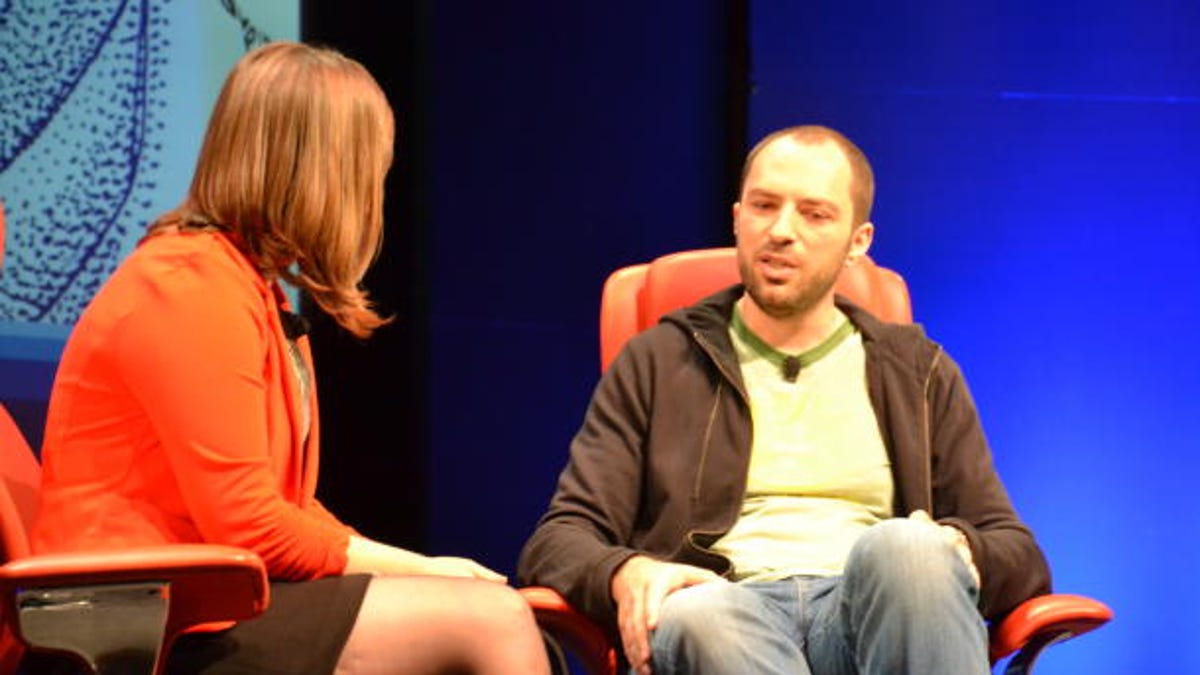Who is WhatsApp co-founder and CEO Jan Koum?
With Facebook's announcement to acquire the messaging service, one of Silicon Valley's more private CEOs is now facing the limelight.

WhatsApp co-founder and CEO Jan Koum isn't what you'd call a bragger, but he has plenty to boast about.
In just five years, Koum and WhatsApp co-founder Brian Acton have created one of the world's largest messaging apps -- an app that Facebook just agreed to buy for $16 billion, plus an additional $3 billion in stock options that will vest over the next several years.
With the acquisition, Koum, 38, will join Facebook's board of directors, but WhatsApp will remain autonomous and independent from the social network, much like Instagram. Koum wrote in a blog post on Wednesday that WhatsApp will continue with its original mission, which is "building a cool product used globally by everybody."
As far as Silicon Valley CEOs go, Koum keeps a low profile and is a man of few words. He likes to curse, claims to distrust advertising, and tends to downplay his success.
His simple Twitter account doesn't list his CEO title, and his bio is the Kanye West quote, "We on a galaxy the haters cannot visit." Koum tweets sporadically and only follows one account -- Jesus Christ Silicon Valley, which is a joke blog about the tech world.
Koum's LinkedIn account is even more sparse, along with a healthy dose of self-deprecation. He lists his job title as WhatsApp's "Sr. Tweet Manager" and says he's "building cool %&*# used by millions of people." His past work experience shows that he "did some work" for Yahoo. Koum lists that he "barely graduated" from high school in 1995 and "dropped out" of San Jose State University.
Koum immigrated to the US from Communist Ukraine when he was a teenager. A few years after attending San Jose State University, he got a job at Yahoo and worked there for nine years at first in systems security and then in infrastructure engineering. Yahoo was where Koum met Acton. In 2007, the two left Yahoo; and in 2009, they launched WhatsApp.
Based on making the world more open and connected, Koum and Acton fashioned WhatsApp as a simple alternative to texting. The idea was to create a service where people could reach friends and family anywhere in the world on any type of smartphone without having to pay for each message. Different than other messaging apps, WhatsApp costs 99 cents for iOS and is free on Android for the first year, and then costs 99 cents.
Relaying billions of messages a day and with 450 million monthly active users -- more than 70 percent of whom are active on a daily basis -- WhatsApp is on par or has surpassed many major social networks and messaging services, like Skype, Facebook Messenger, and Twitter.
Despite the fact that Koum has kept a quiet public presence, he has been vocal about his distaste for advertising. During an interview last April, Koum said he wanted to continue to focus on messaging as the company's core service and not turn WhatsApp into an advertising showcase.
"Mobile and messaging is the only thing we do," he said at the time. "It's in our heart and in our blood and DNA."
It appears Facebook's acquisition of WhatsApp shouldn't change Koum's objectives. In his blog post on Wednesday, he said the partnership will allow WhatsApp to continue on its simple mission.
"This will give WhatsApp the flexibility to grow and expand, while giving me, Brian, and the rest of our team more time to focus on building a communications service that's as fast, affordable and personal as possible," he wrote. "And you can still count on absolutely no ads interrupting your communication. There would have been no partnership between our two companies if we had to compromise on the core principles that will always define our company, our vision and our product."

